
Floods have caused a lot of damage to people and property. In fact, the recent floods, especially the two floods in the Northern region from October 6 to 8 and the prolonged floods in the Central region from October 22 to 29, have left a lot of experience in flood response and prevention. To ensure safety, people need to equip themselves with knowledge and skills to prevent floods, minimize the risk of natural disasters, especially in the face of the forecasted complicated developments of rain and floods in the coming time.
Follow instructions and closely monitor forecasts.
Most recently, floods occurred in the Northern region in early October 2025 and the Central region in the last 10 days of October 2025... causing very serious damage to people and property. Learning from experience, to prevent floods, the most important principle is that people must absolutely comply with the instructions and directions of local authorities.
To minimize damage when floods come, people need to equip themselves with important coping skills such as monitoring weather forecasts, preparing essential items, safe evacuation skills and handling emergency situations. Being proactive and having the right knowledge will help protect lives and property more effectively.
The Department of Dyke Management and Disaster Prevention and Control, Ministry of Agriculture and Environment, recommends that people should not be subjective and comply with the instructions of local civil defense agencies and relevant units.
Specifically, before a flood occurs, people need to regularly monitor flood warning information in their living area to proactively respond; raise assets, store important documents in safe places, and move vehicles to higher terrain. At the same time, determine the safest shelter for all family members; prepare boats, buoys, rafts, rafts, floating objects; reinforce the house with a mezzanine, a temporary exit on the roof, and store belongings in case the flood continues to rise.
In addition, find ways to protect water sources; stock up on drinking water, food, and medicine, enough for at least 7 days. Find out the elevation of your home to determine if the predicted flood level is likely to affect your home.
Move the main circuit breaker or fuse box, circuit breaker, and electric meter above the known flood level by yourself or by a qualified person. Move valuables and appliances out of flood-prone areas such as lower floors or basements. Learn how to shut off the electricity, gas, and water in your building.
People should proactively evacuate riverbanks, low-lying areas, and areas at risk of landslides and flash floods. Keep emergency phone numbers and addresses. Have plans in place to prevent floods at night.
Do not walk or drive through flooded areas.
During floods, people need to move to high and safe places. People need to monitor and update information related to floods such as: Rapidly rising water, flooding of highways, bridges and low-lying areas. When there is a flood warning in the area where they live, they need to take preventive measures such as immediately evacuating to a safe shelter with higher ground if requested by local authorities; staying away from flooded areas, even when the water is receding;
Do not walk, swim or drive through flooded areas or fast-flowing water; do not play, swim and absolutely travel or go out while high floods are occurring, except in emergency cases and with specific instructions from authorities; do not pick up firewood or floating objects on the river, do not enter dangerous areas (landslides, flash floods, overflows...). When forced to move, use life jackets or other floating objects.
People should pay special attention to potential flash floods, snakes in flooded areas, do not go near or step on fallen power lines or poles near houses or flood shelters; use flashlights instead of using open flame lighting devices (candles, torches, etc.) to search for items in confined spaces or gas stove areas, as this can easily lead to the risk of fire or explosion. Practical experience shows that preparing flashlights, spare batteries, mobile phones; keeping important phone numbers and necessary contact addresses in case of emergency... is very important.
People also need to proactively clear drainage near their homes and residential areas to create flood escape routes; notify the authorities when there are incidents of clogged drainage or deep flooding; do not park in areas at risk of flooding; prevent flooding in apartment basements; and update the latest news on flood situations through the website of the National Center for Hydro-Meteorological Forecasting at nchmf.gov.vn, provincial, municipal and regional Hydro-Meteorological Stations; and official mass media of the Central and local levels.
In case the house is flooded and has a high risk of flooding, people need to cut off household electricity sources, electrical equipment... to reduce the risk of electric shock. If they have to evacuate, when there is enough time and safety is ensured, people should unplug devices and cut off electricity, gas and water supplies.
Watch out for hazards when cleaning your home.

In the post-flood situation, people need to monitor the situation updates from local authorities and only return home (for people who have to leave their homes due to flooding or houses in areas at risk of flash floods, landslides, etc.) after the authorities have declared the area safe. People continue to monitor the situation to understand the risks that may occur after floods or changes in weather conditions.
Before re-entering a flood-damaged home, residents should continue to check the power cut-off at the fuse box, circuit breaker or main circuit breaker until their home is safely dry; check the gas system; check and look for potential fire and explosion hazards; check the floor, doors, windows and walls for cracks or other damage to ensure the home is not at risk of collapse. When cleaning the house, residents should wear gloves and boots when handling debris, be careful with sharp objects, pay special attention to exposed electrical wires and other hazards... At the same time, residents should always keep an eye on children, do not let them play with water in places such as storm drains, ravines or sewers.
After a flood, food and drinking water sources may be contaminated, people should throw away food that is not kept cold enough in a designated place. If there is concern about the quality of water after a flood, boil it for at least three minutes before drinking, cooking or using water from a safe source (e.g. bottled water) until the family's water supply is no longer contaminated; store and cover food and potable water to avoid further contamination.
The Hydrometeorological Agency recommends that, in the context of climate change, the weather is becoming more and more complex with many dangerous and extreme forms such as heavy rain, floods, flash floods, landslides... in a short time. Therefore, it is recommended that authorities at all levels and people regularly update and integrate hydrometeorological forecasts and warnings in short-term bulletins of 1-3 days, to promptly adjust production plans and appropriate response plans, ensuring safety for production activities and people's lives.
Also according to the recommendations of the health sector, heavy rain causes major floods, inundation, and waterlogging, so immediately after the flood recedes, it creates high humidity, creating conditions for bacteria and viruses to develop and cause diseases to humans such as accidentally coming into contact with objects containing bacteria and viruses that cause diseases... thus, people's immune systems will be in danger. Therefore, immediately after the flood recedes, in addition to cleaning and tidying up their houses, stabilizing their lives and production, people also need to pay attention to implementing health protection measures such as regularly washing their hands with soap and clean water, especially before eating or after going to the toilet to limit the penetration of pathogens into the body.
To ensure safety, people should choose fresh, clean food with clear origins. People can also prepare their own food to ensure safe meals with the principle of eating cooked food and drinking boiled water.
People should increase physical exercise to ensure good health, proactively respond quickly, promptly and effectively to floods and inundations that may occur in the near future...
Source: https://baotintuc.vn/xa-hoi/khuyen-cao-nhung-ky-nang-phong-tranh-rui-ro-khi-co-lu-lut-20251108141622144.htm












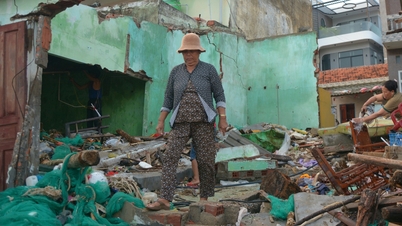









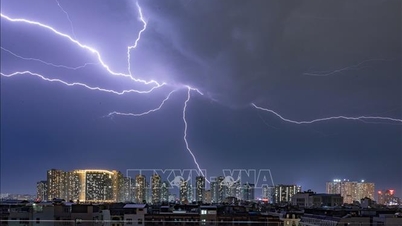












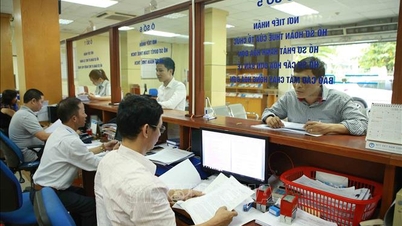



![[Photo] "Ship graveyard" on Xuan Dai Bay](https://vphoto.vietnam.vn/thumb/1200x675/vietnam/resource/IMAGE/2025/11/08/1762577162805_ndo_br_tb5-jpg.webp)

![[Video] Hue Monuments reopen to welcome visitors](https://vphoto.vietnam.vn/thumb/402x226/vietnam/resource/IMAGE/2025/11/05/1762301089171_dung01-05-43-09still013-jpg.webp)































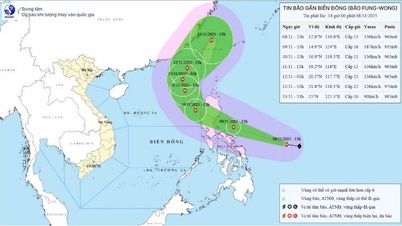












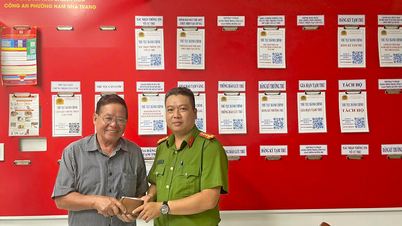





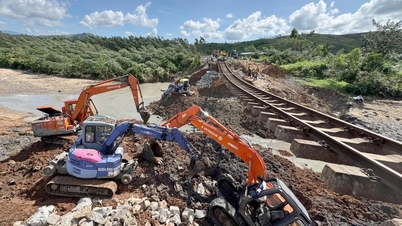
















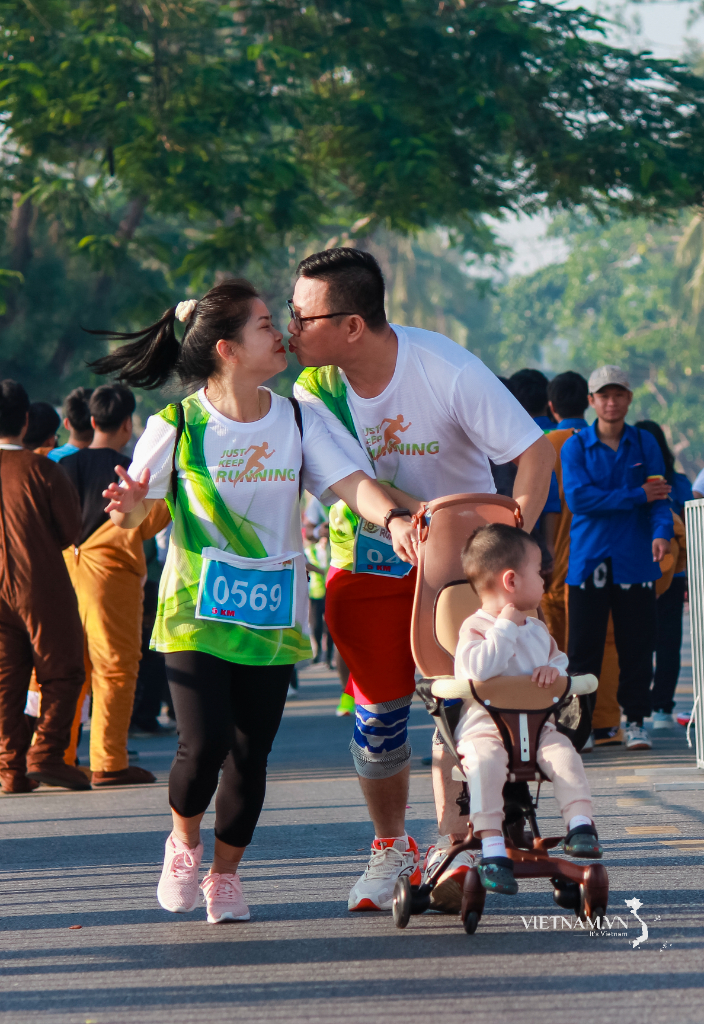

Comment (0)